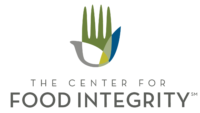The International Poultry Council (IPC) is pleased to announce eight private-sector organizations have recognized the importance of responsible antimicrobial use and are endorsing the council's antimicrobial use stewardship principles.
Advanced within Transformational Strategies for Farm Output Risk Mitigation (TRANSFORM), a USAID-funded activity led by Cargill, the principles guide poultry farmer actions to avoid the need for use of antimicrobials, yet when needed, ensure they are used according to stewardship principles.
These international leaders, representing more than 15% of the global broiler production, include six associations and two companies, and together they represent a collective effort in reducing reliance on antimicrobials globally. These organizations are recognized as leaders for adopting the antimicrobial use stewardship principles and serve as an example for others that want to make a tangible impact on global health security:
- Brazilian Association of Animal Protein (ABPA)
- Federación Nacional de Avicultores de Colombia (FENAVI)
- Poultry Federation of India (PFI)
- Unione Nazionale Filiere Agroalimentari Carni e Uova (UNAITALIA)
- Thai Broiler Processing Exporters Association (TBA)
- Vietnam Poultry Association (VIPA)
- DABACO Group, a Vietnam-based company
- Kenchic Limited, a Kenya-based company.
"Critical actions for addressing antimicrobial use start at the farm," said Robin Horel, IPC president. "We commend these organizations for acknowledging the importance of intentional antimicrobial use not only for the benefit of animals, but for the impact on human health by reducing the risk of resistant pathogens spreading around the world."
By adopting the principles, the organizations are committed to encouraging or taking action that centers around four key points. First, taking a risk-based approach to understand specific use of antimicrobials. Second, adopting management practices to reduce the need for antimicrobials. Third, using antimicrobials only in compliance with national authorizations and finally, that antimicrobials critically important for human medicine should be used for therapeutic purposes only and under a supervising veterinarian's diagnosis and oversight.
"We know that human health is linked with the health of animals," said Annie Kneedler, Chief of Party for TRANSFORM. "When we take a systems-based approach to reconsidering our antibiotic use, we're able to create an ecosystem where animal health improves, animal production increases and reliance on antibiotics decreases. These collective efforts contribute to broader global food security goals that can only be achieved by working together."
This is the latest initiative from TRANSFORM, a project created to advance market-driven animal health solutions that increase global health security and increase access to safe and affordable animal-sourced nutrition. Led by a private-sector consortium that includes Cargill, Ausvet, Heifer International and IPC, TRANSFORM aims to drive lasting, systemic change through animal health data applications, antimicrobial use stewardship and on-farm practices that support animal health and economic sustainability.
For more information about TRANSFORM, visit www.cargill.com/sustainability/transform
Source: Cargill



Report Abusive Comment